Unlike conventional air conditioning which uses refrigerants, the Centralised Cooling System (CCS) is a more energy-efficient cooling solution when compared to conventional air-conditioning systems as it removes heat by piping chilled water into homes from centralised chillers on selected housing blocks with piping running through corridors and into each unit via the front door.
The Centralised Cooling System (CCS) was a key feature in Tengah's eco-friendly push. While the concept has been used in commercial settings, it is new to public housing and is optional for home owners. Those who prefer conventional air-conditioning units can install them instead.
However, recent residents of the units with Centralised Cooling System (CCS) have written to the authorities asking for usage rates to be adjusted or for fees to be completely waived for those looking to terminate their centralised cooling system contract.
One of the main concerns included how the supposed cost savings from opting for the cooling system instead of conventional air conditioning appeared to be lower than what they were told. To date, more than 100 residents have already sent petitions to the Prime Minister’s Office (PMO), expressing their "anxiety and disappointment over the issues" with the system detailing five key concerns regarding excessive charges, misleading advertisement and information, a lack of transparency, cancellation policy issues, and poor communication.
The concept of a centralised cooling system for residential homes is new and SP Group manages the sign-ups, installation and maintenance of the system while working with air-con manufacturer Daikin to install indoor units, diagnosing and resolving reported issues.
On 6 November 2023 (Monday), SP Group said it understands “some time may be needed” for the earlier batches of homeowners to get used to the Centralised Cooling System (CCS) and as an additional goodwill gesture, SP Group will waive all centralised cooling system usage charges for Tengah customers during this interim period from now to 31 December 2023.
SP Group currently collects an extra 35 per cent of the installation charge from customers who choose not to proceed with the system after a 30-day cooling off period when they sign an installation agreement due to costs and resources incurred to secure supply and contracts for the installation. Customers also have to pay the full installation charge if they choose not to proceed after the fan coil units, piping and cabling have been installed (see table 1 below).
As a form of goodwill, SP Group announced it will now reduce the payment to be collected by 50 per cent in the event of cancellation as a “further gesture of goodwill”. This was after taking into account feedback from the early batch of homeowners and the initial issues that cropped up.
SP Group also said it has engaged with residents from more than 2,000 households through various platforms in the last 12 months through the Tengah website and app and 18 events held for residents to provide updates on their upcoming centralised cooling system activation and address their queries in person.
Meanwhile, HDB said it will continue to “monitor feedback” and support SP Group to ensure the roll-out of the centralised cooling system in Tengah “proceeds as smoothly as possible”.
Tengah - Singapore's First Eco Town
Singapore's dream of creating the first eco-town to instill a greater sense of place, well-being, and quality of life is finally happening in the masterplan of Tengah Town, lovingly known as “Forest Town”, which draws on a slew of sustainable planning principles to create an ecological town of unprecedented depth and scope.
Tengah is the first HDB town to have a car-free Town Centre where green commute such as walking and cycling are encouraged. The separation of pedestrian flow from vehicular flow right in the heart of town will create a safer and friendlier space.
Tengah Town includes changing the lighting system for greater energy efficiency, finding pockets of space within the towns to put in more greenery and community gardens and having infrastructure such as bike paths and electric infrastructure for vehicles built into the design of the town.
Smart solutions in Tengah Township can help create a more sustainable, liveable, and safe environment, while enabling residents to benefit from more efficient services and greater convenience. Tengah eco-Town will house five districts and will include the creation of a 100m wide and 5km long forest corridor. Walking and cycling paths will create Singapore’s first car-free town centre.
Most bus stops will be within 300 metres of residential blocks in Tengah Town. Bus services are also comprehensively planned to facilitate both intra-town connection to key amenities and inter-town connection to nearby MRT stations and workplaces. Bus priority corridors also enhance the overall bus network.
"Tengah residents can access neighboring towns, Jurong lake District, Jurong Gateway CBD or to the city via the upcoming Jurong Region Line (JRL) or dedicated bus services. Within Tengah, there are 4 upcoming Jurong Region Line (JRL) MRT stations: JS3, JS4, JE1, and JE2. Brickland District will also be served by NS3A. Most Tengah residents will live within walking distance to an MRT station, providing greater convenience for all reducing the need for residents there to own a car." say real estate professional Kiwi Lim from Huttons Asia.
HDB's Biophilic Town Framework for Tengah
HDB has taken great effort to develop the Biophilic Town Framework to create a nature-centric neighborhood in a holistic manner, so that future residents living in Tengah can better connect with nature and enjoy its intrinsic benefits.
Guided by the Biophilic Town Framework, housing developments in Tengah are designed with the 5 key elements of neighborhood landscapes - soil, flora and fauna, outdoor comfort, water, and people. All the districts in Tengah will incorporate biophilic designs to connect residents more closely to nature, to promote better health and well-being, and to offer a greater sense of place. In addition to the Centralised Cooling System to provide a more energy-efficient cooling solution than conventional air-conditioning systems, HDB also has a few more innovative eco initiatives not yet seen in other towns for Tengah Town below:
Solar Photovoltaic Panels
In addition to the horizontal solar photovoltaic (PV) panel on residential rooftops, vertical solar PV panels will also be piloted. The solar energy collected from both the horizontal and vertical PV panels would be used to power the Centralised Cooling System (CCS) in residents’ homes, as well as supplement the electric load for the Electric Vehicle (EV) charging. The vertical solar PV panel will be neatly integrated with the building façade, resulting in an aesthetical appearance while generating solar energy.
Environmental simulations
HDB uses environmental simulation tools to design a windy and shady living environment. For example, we strategically place HDB blocks so that they do not obstruct wind flow to playground and preschools.
Pneumatic Waste Conveyance System (PWCS)
The PWCS is an automated waste collection system that uses high-speed air to transport household waste, and will replace the conventional truck collection at every residential block. The waste will be transported from surrounding blocks to a central location, through an underground pipe network. The PWCS helps create a cleaner and more hygienic living environment by reducing odor and spillages associated with manual collection, and minimises pest infestation.
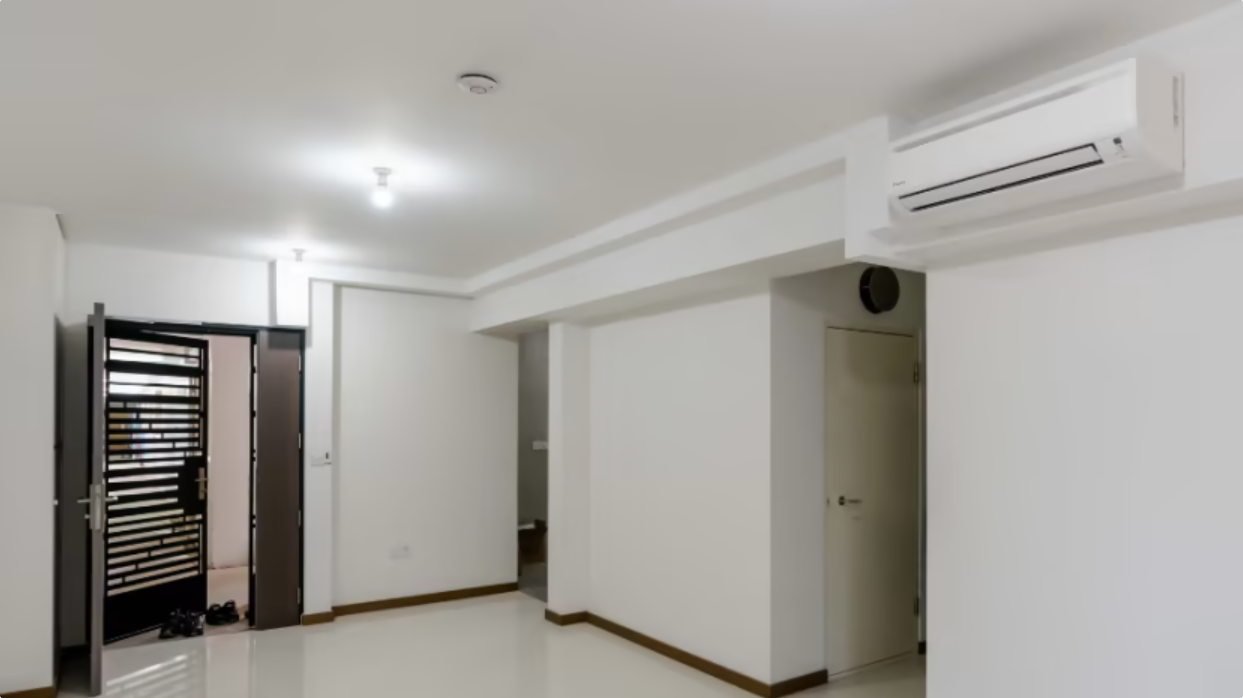
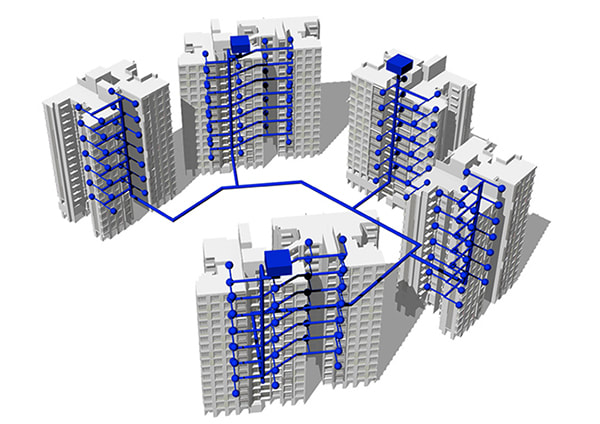

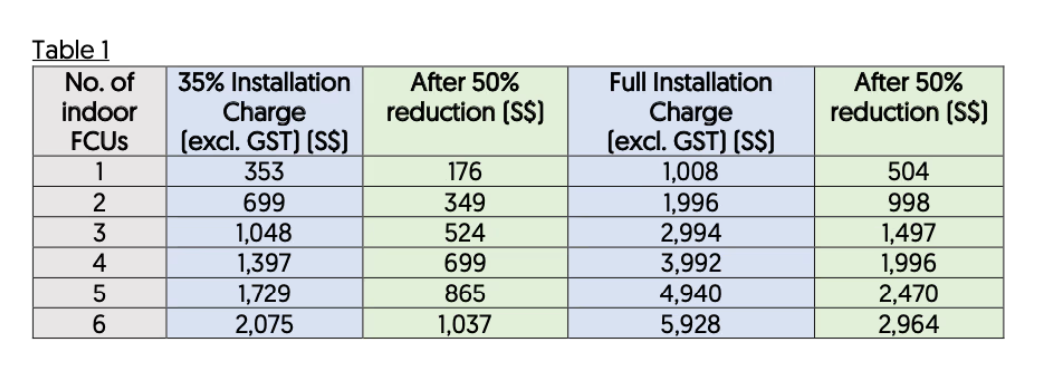
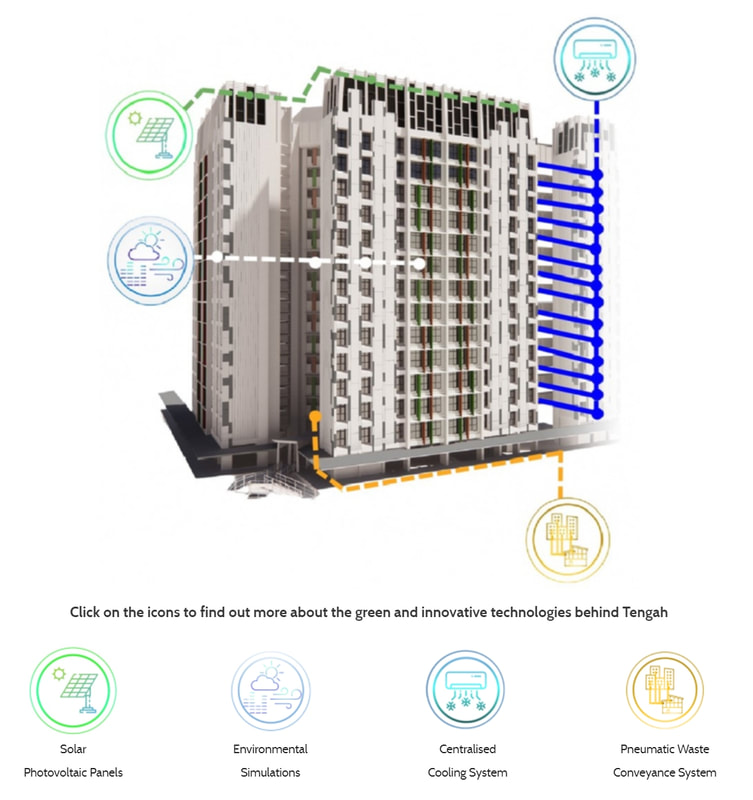
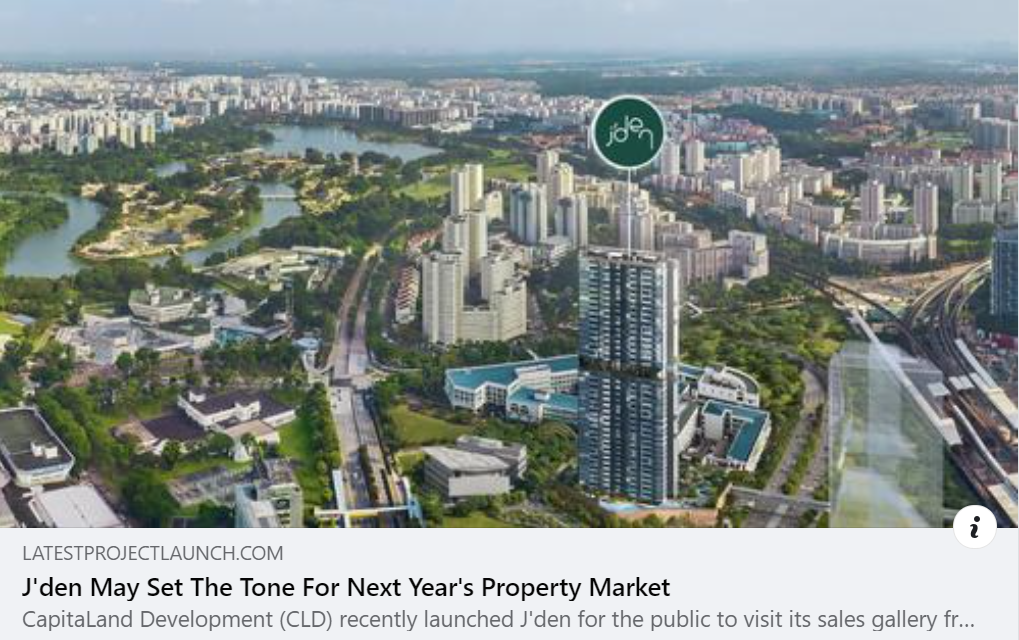



 RSS Feed
RSS Feed
